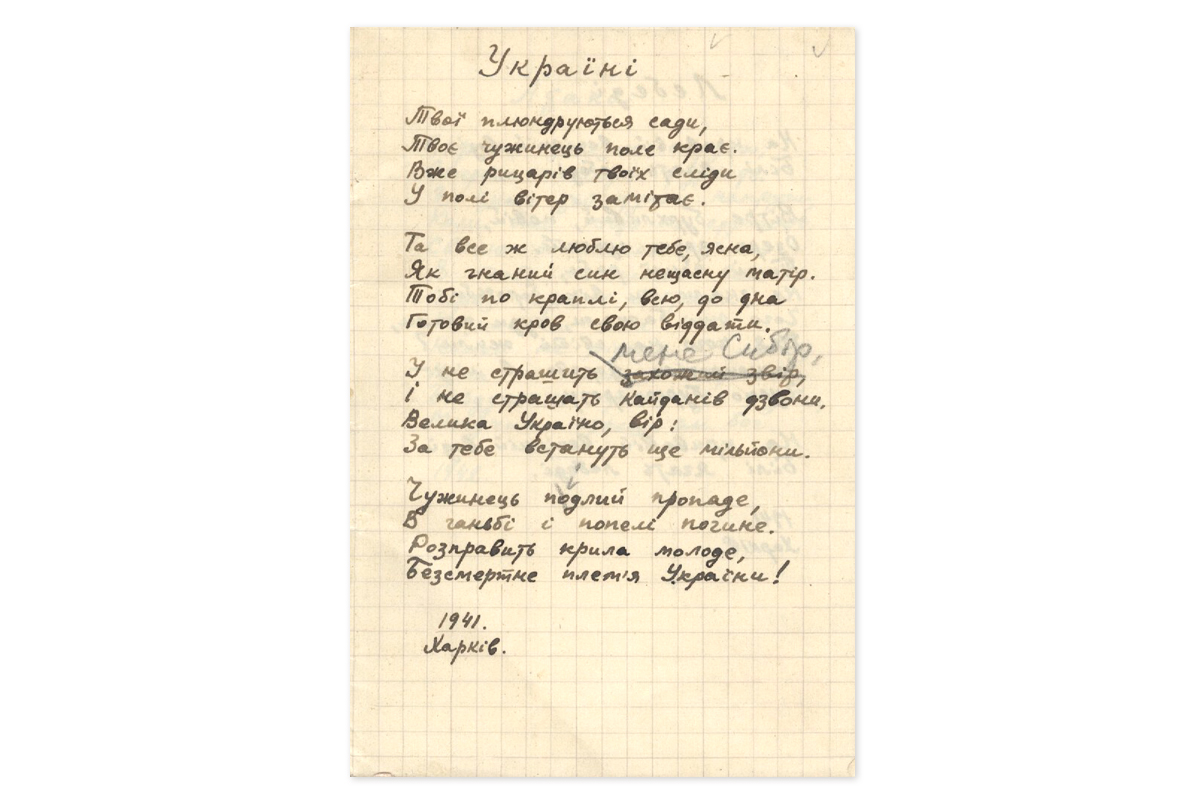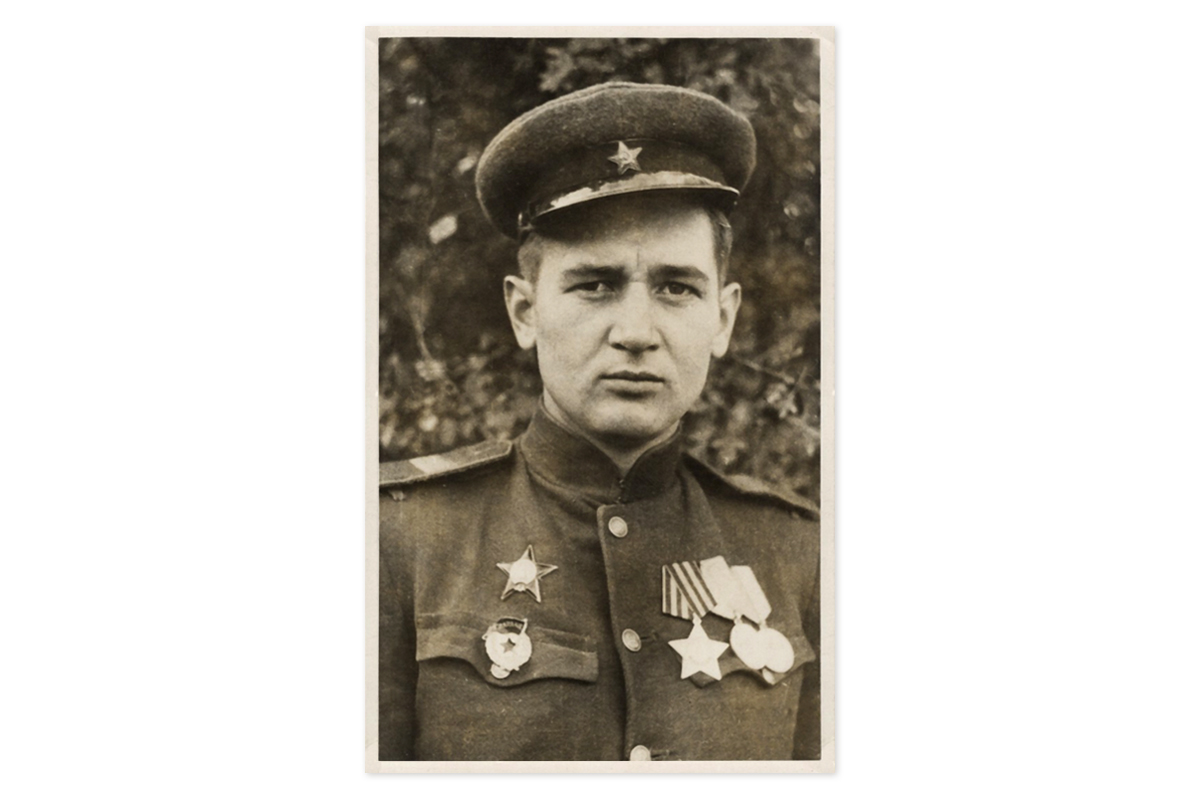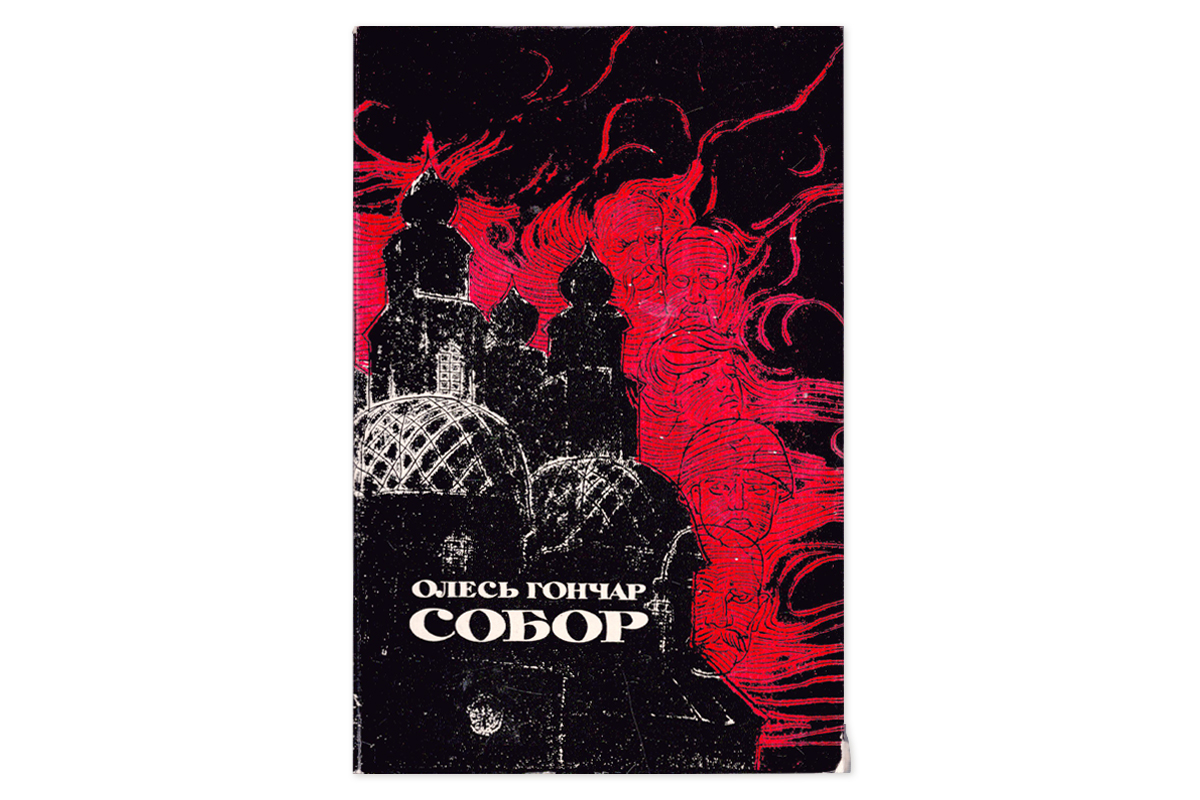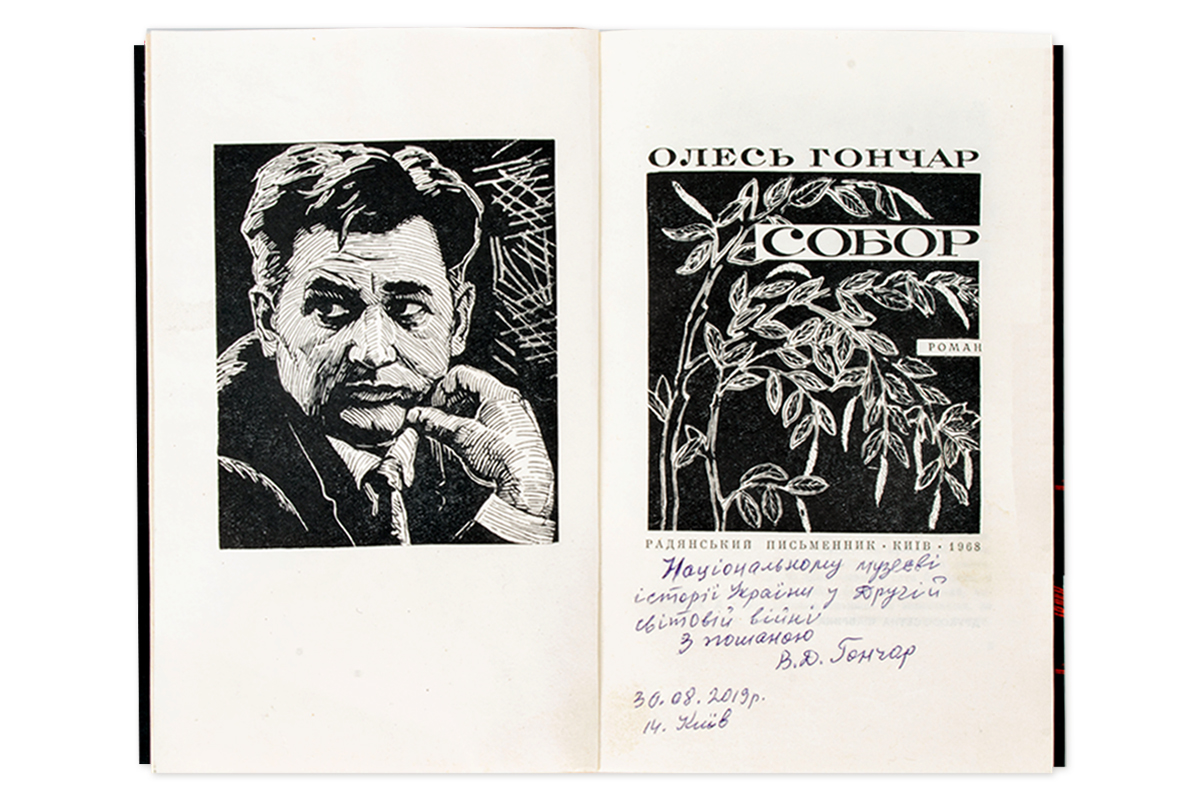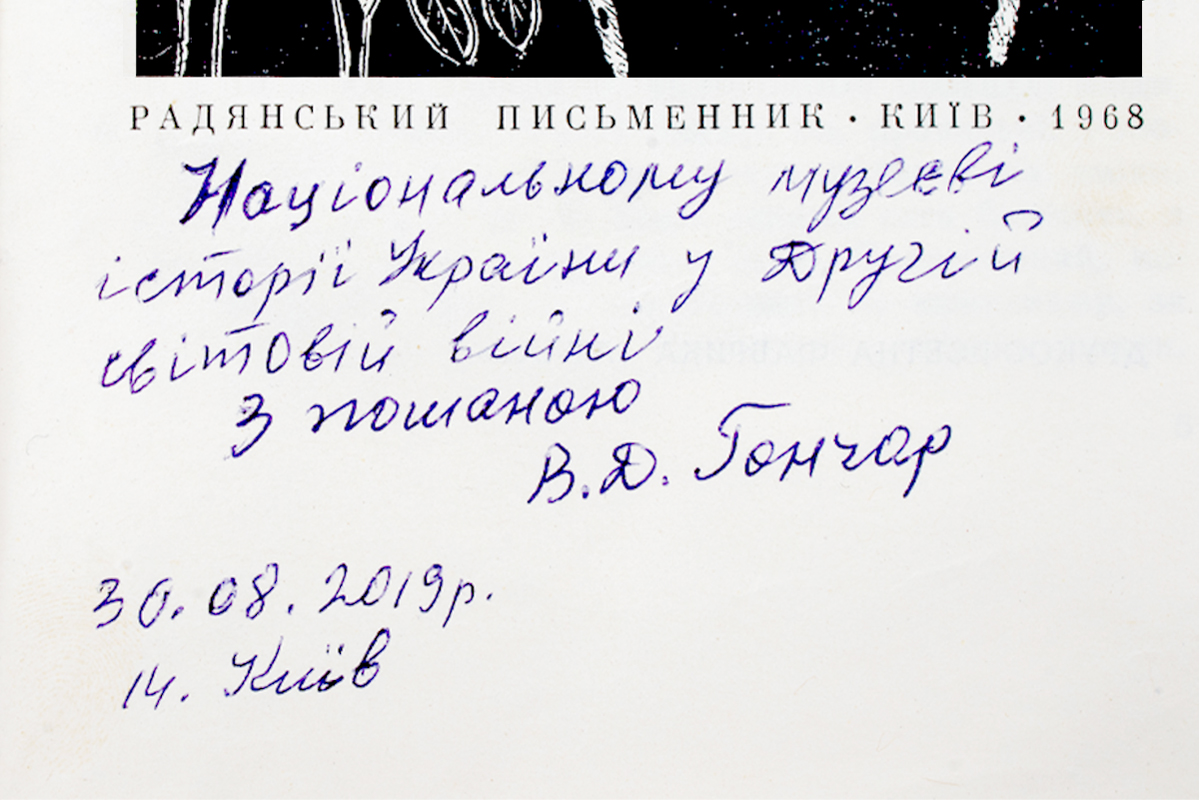In the Museum exhibition space presented a notebook with manuscripts of poems of famous Ukrainian author and public activist, board member of the Union of Writers of the UkSSR, recipient of a number of prizes, Hero of Ukraine Oles (Olexander) Honchar. A poem “To Ukraine”, written in 1941 is on pages of this notebook. This unique relic with author`s correction of a row “does not frighten me Siberia” along with other items of written authenticity became able to exhibit after Ukraine gained its independence. This artifact at first was presented in 1994, after fundamental (for those times) re-exhibition.
After beginning of the German-Soviet War Oles Honchar, being a student of philological faculty of the Kharkiv University participated in combat actions on Ukrainian territory as a soldier of student battalion. He was wounded in hostilities neat city of Kharkiv and became prisoner of war. Since September 1943, Honchar got into hostilities again. In the intervals between combats, he wrote about all he seen in his art creativities, which reflected personal experience of Ukrainian patriot. According to the words of Honchar himself in his “Poetry of the War Years” were depicted prototypes of images, which later were developed in the “Banner carriers” trilogy.
However, simultaneously with the peak of the author`s carrier contradictions with the Soviet authorities began. Oles Hochar stigmatized them for their disinterest to “small Ukrainians” and denial their existence. After his novel “Cathedral” was published in January 1968, author was accused in undermining foundations of the Soviet Order, vilification of authorities and slandering “ordinary people — Soviet workers”. The “Cathedral” was prohibited to publish within completely 20 years. Just author`s fame and support from few of allies among his colleagues (such as writer Pavlo Sahrebelnyi and poet Mykola Bazhan) saved Oles Honchar from imprisonment. Only in 1989, the “Cathedral” was published in the “Dnipro” publishing house. In October 1990, Oles Honchar expressed his solidarity with the Revolution on Granite participants. He demonstratively left the Communist party. On the historical session of the Supreme Council of Ukraine, he declared results of the referendum, which expressed the will of Ukrainian people to live in independent state. He also became one of the founders of Ukrainian Fond of Culture, which acting in sphere of cultural renaissance of nations living on Ukrainian territory.
Writer`s works were translated into 67 languages and the Biographical Centre in Cambridge (United Kingdom) recognized him as a ’World Intellectual of 1992–1993.’ The writer not only enriched the treasury of contemporary Ukrainian culture with his works but also contributed significantly to the public life of his homeland.
